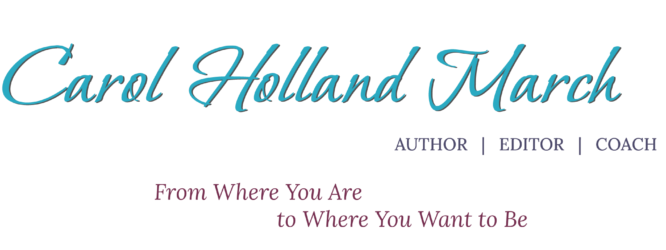 Do you have an inner critic? Do you recognize its voice?
Do you have an inner critic? Do you recognize its voice?
You know the one I mean. It whispers, “How could you be a writer? Start a business? Stay on a diet? Stick to an exercise program?”
It murmurs in the background, always on alert, ready to stop you from moving forward.
Or, maybe you don’t even hear it. Maybe you stall out in the middle of a new venture. Lose interest. Get too busy. Decide it wasn’t important.
Resistance is a force. It’s human and it’s normal. Everyone resists change. Some a little, some a lot. Resistance seems to be a function of how our brains work, so it’s nothing to judge yourself for. The point is to recognize it, and learn how to work with it.
The inner critic is a form of resistance that is especially virulent because it mimics our inner voice. We listen to the critic and believe we are hearing ourselves. In fact, we’re hearing an internalized judgment from parents, teachers, friends, the community or the larger culture.
You can think of the inner critic as a recalcitrant child, a part of us that has not evolved. It’s stuck in the past. Something hurt it, and now it wants to protect you from experiencing more pain.
Better safe than sorry. Why rock the boat? What if I try and fail?
The problem with this approach is that we stagnate. Potential goes untapped, hopes fade, creativity withers and enthusiasm is lost. All because we weren’t willing to engage the inner critic.
Something as simple as asking yourself if its messages are true TODAY can work wonders. If you engage it, you can find out what it wants. You can help it evolve and come into the present.
Instead of seeing the inner critic as a force to be ignored, defeated, boxed in, argued with, silenced or stomped on, a gentler approach could transform it into an inner ally.

An inner ally supports, encourages, focuses on the positive, sets goals, makes plans, knows that growth is process, is a learner, and remembers that others are more focused on themselves than on judging us.
There are many ways to change your relationship to the inner critic. I have found this simple process to work for me.
1. Sit quietly. If you meditate, pray, or quiet your mind in nature that’s the perfect time for this exercise. If you journal, you can engage your critic with free writing.
2. In your mind or aloud, say “hello.” Allow an image, a sensation or words to appear. Say “hello” again.
3. In your mind or your journal, ask your critic if she is willing to talk to you. (this may be a little unfair, since she’s doing it all the time, but it’s polite, and often changes the dialogue).
4. Ask her why she is giving you negative messages.
5. Listen. Do not argue. Simply listen.
6. Conclude by writing and/or drawing what you asked and learned from your critic.
You can repeat this exercise with any question. You can offer the critic alternative ways of looking at the issue at hand. When you hear a negative message, you can turn it around.
For example, if your critic say, “It’s too cold to go for a walk today. Just stay inside.”
You could say, “Yes, it is cold. But I’ll wear my heavy coat and I’ll feel better if I complete my goal of exercising four times this week.”
With practice, you can turn around any negative programming that’s stuck in your brain. As you realize that your beliefs can be changed, your inner critic will gradually transform into an ally.
7. The last step of this exercise is the most powerful. Conclude each session by forgiving the critic and yourself.
My next post will be about a simple, yet profound method of forgiveness that has helped me shift my critic into an ally.
What about you? Does an inner critic hold you back?



 Help! I’ve Run Out of Time!
Help! I’ve Run Out of Time!

 Do you have an inner critic? Do you recognize its voice?
Do you have an inner critic? Do you recognize its voice?